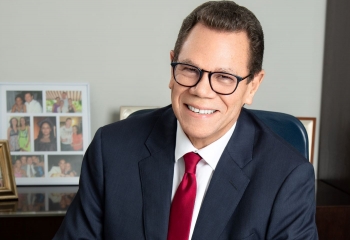CDB President Gene Leon Speech - Africa - CARICOM Summit of the Heads of State and Government

Excellency President Uhuru Kenyatta, Excellencies Heads of States, and other Leaders of the African Union (AU) and the Caribbean Community (CARICOM), let me begin by thanking you for organising this ground-breaking Summit. Aptly, this summit precedes the International Day for South-South cooperation on September 12, whose formal concept emerged over a half-century ago. Importantly, real cooperation between Africa and the Caribbean goes back centuries, with a relationship forged in our shared history and culture, and our sense of a common identity.
Today, I will limit my remarks to two areas of mutual concern to our Regions, that is, debt sustainability and climate change; and the role of institutions like the Caribbean Development Bank (CDB) in crafting innovative approaches to financing development.
Debt sustainability has been a big concern, with AU and CARICOM countries being counted amongst the world’s most highly indebted nations. The COVID-19 pandemic has highlighted our structural weaknesses and amplified the debt problem. In 2020, public debt reached 70% of Gross Domestic Product (GDP) in Africa and 83% of GDP in CARICOM. Our Regions face the unusual conundrum of striving for debt sustainability while seeking to generate adequate fiscal resources to build with resilience.
But even as we contemplate such recovery, our development prospects are further buffeted by climate change. We are among the most vulnerable countries to the impacts of climate change. We are less able to resist, adapt to, and recover from the effects of sea-level rise, prolonged droughts, and extreme weather conditions.
Natural hazard events have repeatedly resulted in adverse environmental, social, and economic consequences. Projections also suggest that our two regions will face more exaggerated climate risks for the remainder of the century. This poses a serious threat to our attainment of the sustainable development goals.
There is merit in developing joint approaches to the debt and climate change challenges. Indeed, working together, our regional development banks are well-placed to engineer innovative financing approaches, and to advocate for access to lower cost of finance,
based on an imperative for development that distinguishes pre-event vulnerability, magnitude of impact, and post-event persistence and duration of impact. These effects, evidenced by our repeated natural hazard events and indeed the Covid-19 pandemic, present strong arguments against the inadequacy of per capita income as a measure of classification and access to concessional finance.
CDB fully endorses the institutionalisation of CARICOM-AU relations. I urge that we go further by establishing trade and cooperation agreements which would significantly expand the markets for goods and services; facilitate export diversification; and create the right environment for innovation and technology transfer.
Africa is a fountain of knowledge on innovative financing for the private sector, especially youth entrepreneurship. We, in the Caribbean, can learn from Boost Africa, the joint initiative between the African Development Bank and the European Investment Bank, that offers an innovative way to de-risk private investment.
Further, we cannot achieve climate resilience without protecting terrestrial and marine ecosystems. Such actions will provide essential services that sustain livelihoods by providing food and clean water, and reducing soil erosion and flooding.
We can also share experiences and practices on valuing, using, and benefiting from our natural resources while protecting them for future generations. Jointly, we should support and advocate for increased concessional finance for investments in nature-protecting solutions.
In conclusion, let me underscore CDB’s commitment to enhanced cooperation in knowledge and financing solutions with our partners in Africa. This summit offers an ideal opportunity to harness our combined and untapped potential and to begin to look forward to the meaningful transformation of our two regions.


